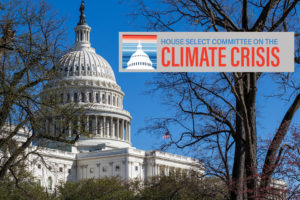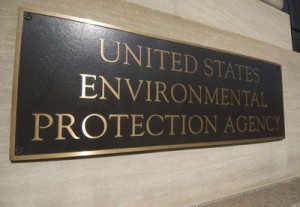4 item(s) were returned.
The U.S. House of Representatives Select Committee on the Climate Crisis is requesting information around policies that Congress should adopt to solve the climate crisis and adapt to the impacts of climate change. Committee staff told us they would welcome feedback from OEP experts. Four specific questions from the committee’s request for information are outlined below. We will compile and send to the committee substantive comments posted to this discussion by November 11. U.S. electricity generation from wind power is more than 7 times higher today than it was in 2017, and U.S. solar power generation is 100… [more]
View InsightMember
U.S. House of Representatives
Two of the most pressing issues facing us today are the need to address the economic costs and public health risks associated with climate change and strengthening the middle class. Over 97 percent of climate scientists agree that our planet is warming, primarily as a result of fossil fuel combustion, and that this warming is already causing more frequent, dangerous, and expensive extreme weather events. At the same time, our middle class is struggling. While the productivity of our economy increased by 75 percent between 1979 and 2012, wage growth for middle class workers increased by only 5 percent during… [more]
View InsightVisiting Scholar
American Enterprise Institute
According to the Environmental Protection Agency, the Social Cost of Carbon (SCC) is supposed to be “An estimate of the economic damages associated with a small increase in carbon dioxide (CO2) emissions, in a given year”. However, the EPA’s “analysis” of the “social cost of carbon,” developed recently as justification for a rule constraining energy use by microwave ovens, ignores the fact that U.S. emissions of greenhouse gases are about 17 percent of the world total. Therefore, even an immediate reduction by half in U.S. emissions would yield a reduction in world temperatures of about one-tenth of one degree by… [more]
View InsightSenior Policy Analyst
Information Technology and Innovation Foundation
Most clean energy advocates believe that the world has all the low-carbon technologies needed to effectively address climate change. In their view – what we describe as the Clean Energy Deployment Consensus – the world doesn’t need technology breakthroughs, but political breakthroughs to drive widespread deployment of clean energy technologies. This translates to a policy environment heavily weighted towards deployment subsidies, mandates, and carbon prices. But The Information Technology & Innovation Foundation (ITIF) argues in its new report, “Challenging the Clean Energy Deployment Consensus,” that the world needs a more comprehensive Innovation Consensus that focuses on developing and deploying affordable… [more]
View Insight

